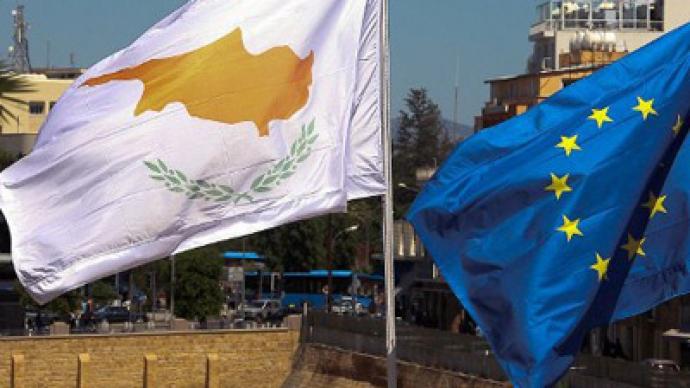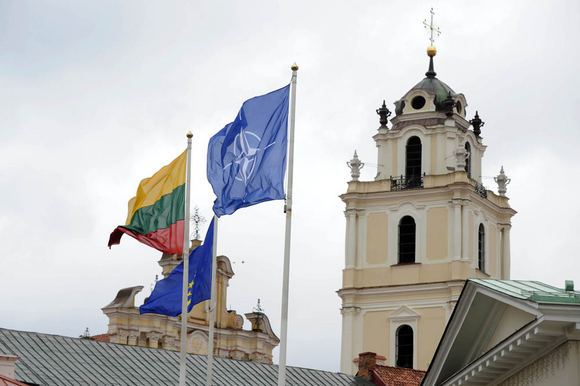The island of Cyprus has been dominating economic news this week. Known to have a geopolitical importance far larger than its size, this is not the first time that the Mediterranean island has been the focus of regional and international attention. Elections three weeks ago brought conservative Democratic Rally (DISY) candidate Nicos Anastasiades to power. Anastasiades has immediately confronted with a wide range of pressing issues, not lease a stalled EU/ECB/IMF bailout that threatens to economically ruin the country.
There is also the ever-present and ongoing occupation of roughly 38% of the northern part of the island by Turkey, which maintains an estimated 40,000 troops there. Further exacerbating this ongoing tension is the current geopolitical standoff over natural gas exploration rights for the eastern Mediterranean seabed, known as Exclusive Economic Zones, that has embroiled Israel into the mix, and could potentially involve Lebanon, Egypt, Syria and Greece.
And yet, one of the first moves the Anastasiades government has taken since being elected has been to have Cyprus apply for NATO’s Partnership for Peace (PfP). The PfP is a program of bilateral cooperation between individual Euro-Atlantic partner countries and NATO, facilitating partners to build up individual relationships with NATO, in turn negotiating a specific path to full membership. Cyprus remains the only EU country that is neither a member of NATO nor a member of the PfP.
The timing of the move has raised eyebrows, as it was previously approved by the Cypriot parliament in February 2011 but vetoed by the outgoing government of communist president Demitris Christofias. The debate revolves around just how genuine the application is. One camp argues the move is meant to encourage the application being rejected by Turkey, which does not recognize Cyprus. Turkey is also a full member of NATO, with NATO defensive missiles recently placed near the border with Syria, and likely to veto any attempt by Cyprus to engage with the Organization; arguably until the Cyprus problem is resolved.
Proponents of the move maintain that the application to join the PfP is genuine, as it would also give Cyprus added leverage and an extra forum through which it could promote its views with regards to the island’s political problem. Similarly, it shows a genuine will and political shift by the Anastasiades government towards the EU and away from allies pursued by the previous Christofias government, particularly Russia.
This is especially noteworthy as Cyprus begins negotiating its bailout package; as significant Russian deposits in Cypriot banks have all but prevented their collapse. These same deposits are coming under closer scrutiny by the EU under bailout negotiations on the assumption that they are laundered funds, which could prompt a Russian run on Cypriot banks and hasten their collapse.
Indeed, Christofias first went to Moscow for a bailout, something Europe seems to have keenly remembered. Russia was also heavily tapped by Christofias to explore Cypriot natural gas in the Mediterranean. That move angered EU allies, who would rather see an Israel-Cyprus-Greece natural gas pipeline as an alternative to dependence on Russian gas and oil. Yet another alternative pipeline is the proposed Nabucco pipeline that would run through Turkey. With competing projects and claims on natural gas, Turkey could yet again be pitted militarily against NATO ally Greece, with Cyprus, Israel and possibly the wider region thrown into the mix.
Cyprus, along with France and the European Commission, continue to block 13 chapters of Turkey’s EU accession process on the basis that Turkey occupies the island with its troops and continues to block Cypriot access to its ports of entry, in direct violation of the EU’s acquis communautaire.
Turkish officials have repeatedly stated that even if a single Turkish citizen did not live on the island Turkey would have to have interests there. The statement is often made in the context of the choice Turkey would have in choosing to either remove its troops and military hardware from the island and moving along its EU accession or choosing security and strategic interests on the island. What was once an obvious choice is today less so, as mentioned here.
England, the formal colonial overseer of Cyprus, still maintains two sovereign military bases on the island. The US backed a Colonel’s junta in Greece from 1967-1974. That same junta supported a coup in Cyprus for the purposes of uniting the island to Greece. When the coup was enacted in 1974, Turkey invaded the island. Democracy was restored to Greece four days after the Turkish invasion, which contributed to the fall of the Colonel’s junta. Cyprus, as a whole island, joined the EU in 2004 but the northern 38% under occupation is not subject to the EU’s acquis communautaire and jurisdiction. Cyprus has rejected the EU bailout plan and is renegotiating the agreement to save its government and banks, caused by overspending and exposure to Greek banks.
But with friends like these, just who are the partners for peace?
Gus Constantinou is a commentator on UN matters in New York. You can follow him @gus_c13




